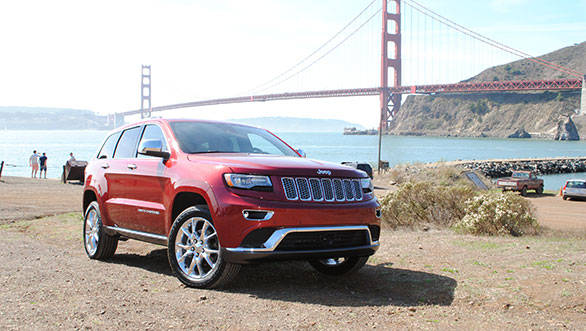Safe driving is more about alertness than speed limits
I recently drove through the State of California and the only thing that got me a bit worked up were the speed limits. United States of America enforces very strict speeding laws, and even though almost everyone in the state breaks them consistently, you are constantly kept aware of the limits. This awareness comes in the form of hundreds of thousands of sign boards posted everywhere indicating the recommended speed limits. Millions of dollars must have been spent on raising the signage across the state. Every road is patrolled constantly either by cops on bikes, cruisers or in some extreme cases, in airplanes over the vast interstates. So yes, there is a lot of nanny-ism when it comes to enforcing speed limits.
Now in the State of California, speed limits can keep fluctuating, both in urban areas or on the interstates. The range of speeds allowed is from as low as 25kmph to all the way up to 110kmph, depending on the road you are on. On certain sections of the interstate, these can vary suddenly and it's quite easy to be caught unawares. Mess around with these limits and, if you do get caught, a world of trouble crashes on your shoulders.
 In the State of California, speed limits can keep fluctuating, both in urban areas or on the interstates
In the State of California, speed limits can keep fluctuating, both in urban areas or on the interstates
Maintaining speed limits are justified, even though there is no empirical evidence to suggest that speeding alone causes accidents. In most cases, it is the lack of attention or ignorance or plumb stupidity that leads to accidents. The intensity of the crash, however, is determined by the speed at which the vehicle was traveling. Yet if you are involved in an accident at a legal 100kmph, walking away unscathed or even alive is still a miracle.
Now data suggests that one of the principle causes of accidents is lack of attention. The highest probability of such a lapse is when you have been driving at a steady speed following the car ahead of you. Mile after mile of dull motoring acts as an anaesthetic, numbing the senses that allow you to react quicker when needed. You go through the motions like a robot, in a state of mind where you do not need to be aware for certain motor functions to function. The human body can achieve a trance-like state where the brain performs certain functions in a very automated fashion. So your eyes may see without actually looking, your arms function without actually feeling, your feet perform their task on the pedals without you actually realising what they are doing. This is a very dangerous state brought on by monotony, and you often see drivers driving in a state of trance. I won't deny it, it's happened to me too.
A simple way of ensuring you stay alert all the time is by taking a break. But as I noticed in California, rest stops are neither marked too well on the interstates nor are they sufficient. In Europe, there is a steady stream of rest stops every few kilometres, where you can stop to get a coffee, fuel up or do whatever it is that keeps you alert. I had a hard time finding a rest stop almost everywhere I drove in the US. The ones that I visited for a break were located in small towns for which I had to leave the freeway and get onto secondary roads. There is a reason why there aren't many rest stops along the freeway, and it has to do with a California State Federal statute that prevents private businesses from occupying rest areas along the interstate. Of course, its benefit is that it brings a lot of cash flow into innumerable local towns that were otherwise drastically affected by the interstates being built.
Another way to ensure that drivers stay alert, and which I believe could be beneficial in a developed country, is to raise the speed limits. Research has shown that as speeds rise, drivers get more aware of their surroundings and stay more alert. There is a concerted effort throughout Europe and United Kingdom to raise the speed limit on motorways in this regard. I think at least the State of California can benefit if the speed limits were raised. I cannot say for sure by how much, but what I can say is that it would make motoring a bit more economical and probably safer.
Now I am not talking out of my hat, empirical evidence shows that raising speed limits does reduce accidents. Neither am I advocating speeding. All I am suggesting is that speed limits need to be adjusted to levels where they ensure a higher level of activity thereby keeping you constantly aware and in a state of readiness for any emergencies that may occur.














